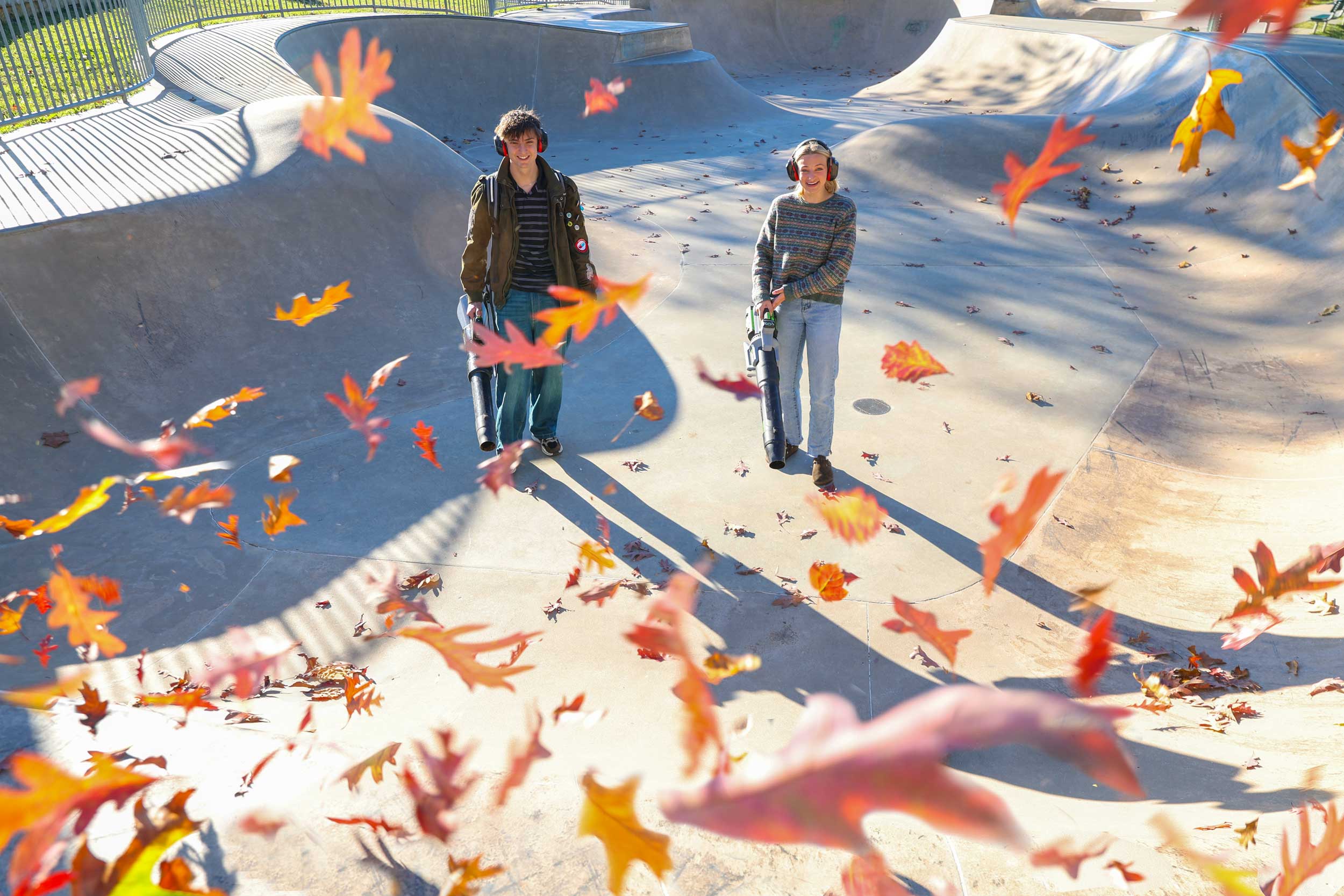What started as a way to satisfy a first-year academic credit requirement evolved into an empowering experience for now-third-year University of Virginia students Jillian Fletcher and Jack Ellis.
Fletcher, who is majoring in finance and global sustainability, and Ellis, a computer engineering major, walked into sustainability engineer Ethan Heil’s University Seminar course with no experience in decarbonization – the process of reducing carbon dioxide emissions to combat climate change.
University Seminar courses give first-year students the chance to engage in hands-on, experiential learning and research. In Heil’s course, Designing a Carbon Neutral Future, students explore how to reduce carbon emissions across all sectors and develop practical strategies to address climate change.
“We started off the class by asking questions like, ‘What metrics do you use to measure decarbonization and sustainability? What strategies work and don’t work as well?’” Ellis said. “We were given a list of local people and different organizations in the area, and we got to choose who to work with to create some kind of decarbonization strategy.”

Fletcher, Charlottesville Skate Park manager Matt Moffett and Ellis stand amid fallen leaves at the park. The Hoos say they are proud their work is helping Charlottesville Parks & Rec and its staff. (Photo by Matt Riley, University Communications)
Students worked in teams with a community partner, developing real-world plans that would directly support efforts at UVA and in the Charlottesville community. One such group was the City of Charlottesville’s Parks & Recreation Department.
“Ethan walked us through the steps he took for measuring UVA’s carbon footprint, so that we could then go and apply those same concepts to our project for Charlottesville Parks & Rec,” Fletcher said.
Heil, who is the UVA Office of Sustainability's sustainable buildings manager, guided them through the process. “Step one was measuring Parks & Rec’s carbon footprint and then step two was establishing a plan working toward a zero-carbon goal,” Fletcher said.
Fletcher and Ellis then developed a plan to replace traditional gas-powered lawn equipment with electric models, reducing the department’s carbon footprint.
The City of Charlottesville’s Office of Sustainability approved the plan, leading to the purchase of electric leaf blowers, a string trimmer and a zero-turn electric riding mower for maintaining the landscape at the Charlottesville Skate Park.










